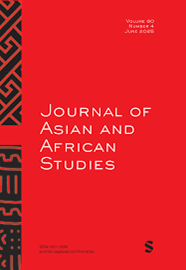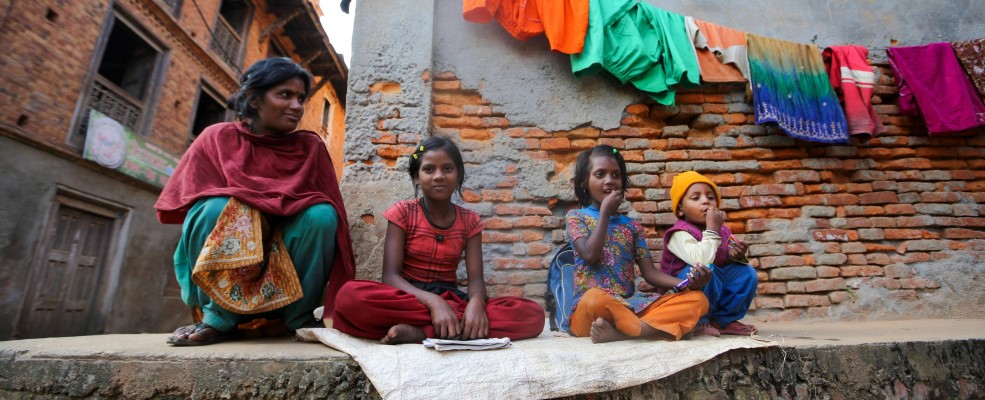Mae ein gwaith ymchwil newydd yn trin a thrafod sefyllfa gyfoes hawliau dynol pobl frodorol yn Nepal. I roi cyd-destun, mae gan Nepal oddeutu 26.5 miliwn o bobl frodorol, sy’n cynnwys o leiaf 35 y cant o gyfanswm y boblogaeth. Adivasi yw’r enw arall arnynt, ac mae rhai sefydliadau’n honni y byddai’r gyfran wirioneddol yn agosach at 50 y cant pe bai rhai grwpiau o bobl frodorol nad ydynt yn cael eu cydnabod ar hyn o bryd yn cael eu cynnwys.
Mae gan y wlad lu o ddyletswyddau cyfreithiol ar gydraddoldeb, ethnigrwydd a hawliau dynol a nodir yn y cyfansoddiad, y côd cyfreithiol domestig a chytundebau hawliau dynol y Cenhedloedd Unedig. Yn wahanol i India a Bangladesh, sy’n wledydd cyfagos, mae’r llywodraeth hefyd yn cydnabod cynhenoldeb. Yn sgil gwrthryfel Maoaidd a diwedd y frenhiniaeth, o dan y cyfansoddiad newydd (tua. 2015) mae dros 60 o grwpiau o bobl frodorol yn cael eu cydnabod yn swyddogol. Mae mesurau pellach wedi’u cyflwyno i gefnogi pobl frodorol, fel y Comisiwn Cenhedloedd Brodorol.
Er gwaethaf y datblygiadau hyn, mae ein hastudiaeth newydd yn cadarnhau sut mae pobl frodorol yn Nepal heddiw yn parhau i ddioddef troseddau sylweddol yn erbyn eu hawliau. Gwnaethom archwilio cyflwyniadau cymdeithas sifil i’r Adolygiad Cyfnodol Cyffredinol diweddaraf, sef digwyddiad monitro hawliau dynol a gynhelir gan y Cenhedloedd Unedig bob pum mlynedd. Er bod Llywodraeth Nepal yn honni, ‘Mae Nepal yn credu mewn presenoldeb hawliau dynol ac yn ystyried bod pob hawl ddynol yn anwahanadwy, yn gydberthynol, yn gyd-ddibynnol ac yn atgyfnerthu ei gilydd. Mae cyflwyniadau sefydliadau cymdeithas sifil i’r UPR diweddaraf yn datgelu’r troseddau sylweddol yn erbyn hawliau dynol a brofir gan y bobl frodorol y gellir eu deall orau gan gyfeirio at ddosbarthiad Vašák o wahanol genedlaethau o hawliau dynol.
Hawliau cenhedlaeth gyntaf yw’r hawl i fywyd, rhyddid i lefaru, rhyddid crefydd, hawl i dreial teg, cydraddoldeb gerbron y gyfraith, a hawliau sifil a gwleidyddol eraill. Mae ein dadansoddiad yn dangos sut mae pobl frodorol yn dioddef troseddau yn rheolaidd, gan gynnwys trais a llofruddiaethau yn nwylo awdurdodau, lluoedd diogelwch, a swyddogion coedwigaeth. Mae sefydliadau cymdeithas sifil hefyd yn cyfeirio at atal amddiffynwyr ac ymgyrchwyr hawliau dynol. Mae yna hefyd ddiffygion ym mynediad pobl frodorol at gyfiawnder, ac maent yn cael eu tangynrychioli yn y farnwriaeth.
Mae hawliau ail genhedlaeth yn mynd i’r afael ag anghydraddoldebau cymdeithasol ac economaidd ac yn gofyn am gyfranogiad gweithredol y wladwriaeth. Mae ein dadansoddiad yn datgelu anghydraddoldeb a gwahaniaethu croestoriadol sy’n effeithio ar fenywod a phobl frodorol anabl. Ar ben hynny, mae’r astudiaeth hon yn dangos bod pobl frodorol yn dominyddu mewn cyflogaeth anffurfiol. Trwy dlodi, mae’n rhaid iddynt fudo o’u mamwlad i gael mynediad at waith dros dro, ansicr. Maent yn aml yn dioddef masnachu, ecsbloetio ac etifeddiaeth wenwynig llafur caethiwed. Prin yw’r mynediad sydd ganddynt at amddiffyniad cymdeithasol, gofal iechyd ac addysg.
Mae hawliau trydedd genhedlaeth Vašák yn arbennig o berthnasol i bobl frodorol. Maent yn hawliau undod ac fe’u nodir yn Natganiad y Cenhedloedd Unedig ar Hawliau Pobl Frodorol (UNDRIP) a’r Confensiwn Rhyngwladol ar Hawliau Economaidd, Cymdeithasol a Diwylliannol (ICESCR). Mae ein dadansoddiad yn datgelu bod ieithoedd a diwylliant pobl frodorol yn cael eu tanseilio gan fethiannau ym mholisi’r llywodraeth (yn arbennig, diffyg adnoddau o addysg mewn ieithoedd lleol) a dadleoli gan gynlluniau datblygu mawr a gynhaliwyd heb ganiatâd rhydd, blaenorol, gwybodus. Felly, mae tir, coedwigoedd, dyfroedd ac adnoddau naturiol pobl frodorol dan fygythiad oherwydd y prosiectau datblygu ymosodol, megis cynhyrchu ynni dŵr, ac ehangu ffyrdd, yn ogystal â datganiadau parciau cenedlaethol ac ardaloedd gwarchodedig ar dir pobl frodorol.
Yn gyffredinol, mae ein hastudiaeth newydd yn dangos bod hawliau dynol pobl frodorol yn cael eu torri’n eang ac yn systemig. Mae hyn yn tynnu sylw at yr angen brys am weithredaeth cymdeithas sifil cryfach i fynd i’r afael â’r broblem hon. Nid yw amser o blaid y cymunedau llai o bobl frodorol. Mae eu goroesiad yn y fantol os nad oes camau adfer ar y gweill.
Gweler y canfyddiadau llawn yn y papur mynediad agored hwn:

Chaney, P. (2025 i ddod) Critical Analysis of Civil Society Organisations’ Perspectives on the Contemporary Human Rights Situation of Indigenous Peoples in Nepal, Journal of Asian and African Studies, Sage. https://journals.sagepub.com/home/JAS
Ariannwyd y gwaith ymchwil hwn gan Academi’r Gwyddorau Meddygol ac mae’r tîm ymchwil yn cynnwys Paul Chaney (Athro Emeritws, WISERD Caerdydd), yr Athro Sarbeswar Sahoo (Sefydliad Technoleg India, Delhi), Dr Reenu Punnoose (Sefydliad Technoleg India, Palakkad) a Dr Haneefa Muhammed (Ymchwilydd Annibynnol, Palakkad).
Credyd y llun: Mehmet Turgut Kirkgoz drwy pexels.

